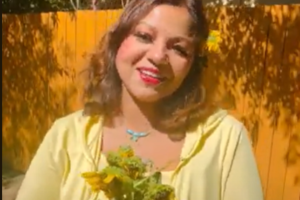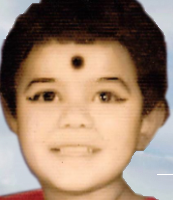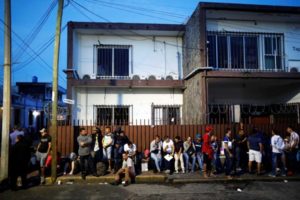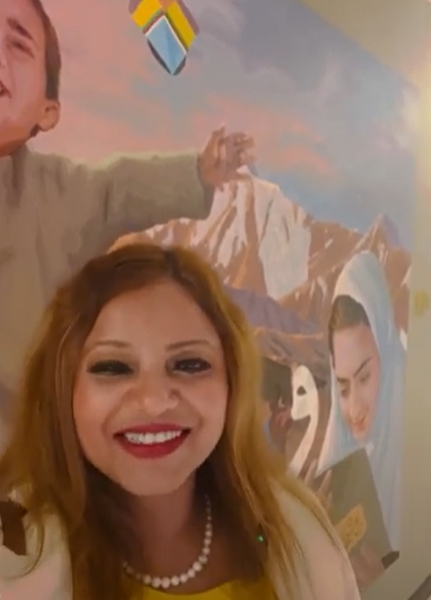The walking began before dawn: Before the clouds broke against the mountaintops, before the trucks took over the highway, even before anyone in the town woke up to check the vacant lot where scores of Venezuelan refugees had been huddling through the night.
Children, grandmothers, teachers, nurses, oil workers and the jobless had all sprawled there together — bound by a collective will to put as many miles as possible between themselves and the collapsing country they had fled.
All but Yoxalida Pimentel. She could not take another step.
“After so many hours of walking, after days, nights, sun, cold, rain — I lost my baby,” she said, crying alone the morning after her miscarriage.
The economic crisis that has engulfed Venezuela under President Nicolás Maduro has set off a staggering exodus. The economic damage is among the worst in Latin American history, researchers say, with more than 3 million people leaving the country in recent years — largely on foot.
They are fleeing dangerous shortages of food, water, electricity and medicine, as well as the government’s political crackdowns, in which more than 40 people have been killed in the past few weeks alone.
Rolling suitcases behind them, some walk along highways, their salaries so obliterated by Venezuela’s hyperinflation that bus tickets are out of reach. Others try to hitchhike for thousands of miles until they reach Ecuador or Peru.
But no matter their destination, the vast majority come through these treacherous roads in Colombia: a 125-mile journey over a 12,000-foot pass here in the Andes Mountains.
“It’s the coldest place I’ve known in my life,” said Fredy Rondón, who had come from Venezuela’s capital, Caracas, with a single bag of belongings. Now, he was breathless at 10,500 feet, with a treeless steppe before him.
“I thought I could take the cold, but this is too, too much,” he said.
His willingness to travel these twisting mountain roads speaks to the desperation in Venezuela. The country is experiencing its deepest political unrest in a generation, with two men claiming the presidency simultaneously.
Here in the Colombian mountains, Venezuelan refugees murmur about Juan Guaidó, the opposition leader who declared himself Venezuela’s legitimate leader last month, inspiring many Venezuelans to rally to his side. The opposition and Maduro are at loggerheads over the delivery of humanitarian aid, which Maduro’s government has blockaded at the border with Colombia, a short distance from where their journey begins.
“We are all scared it will get ugly between Maduro and Guaidó,” said Norma López, who walked with her five children and a 6-day-old infant. “My neighbors said that they were going to take away their teenagers to defend Maduro.”
On hearing the rumor, López said, she moved up her plans to leave the country.
For most Venezuelans, the exodus first takes them to Cúcuta, a sprawling Colombian border city where thousands arrive by footbridge every day.
On the outskirts of the city is a parking lot where volunteers gather around 6 a.m. to offer the migrants a place to shower, a bowl of oatmeal and jackets for the children, if they don’t have any.
“I’m lost, disoriented,” said Edwin Villareal, 25, who said he would walk to the Colombian city of Medellín with his wife and three children, one of whom had asthma. The five had only 10,000 Colombian pesos among them, about $3.
“Perhaps someone gives us a ride,” he said. “We have no money for the bus.”
Few people were offering rides on Route 55, a two-lane highway that weaves into the eastern mountain range known as the Cordillera Oriental. Instead, scores of Venezuelans ascended the road on foot, at a snail’s pace.
At 7,700 feet above sea level, Martha Socorro Duque has spent months watching the migrants file past her living room in the Colombian town of Pamplona. They search for food and shelter in a town with little to offer.
“People came arriving with their shoes totally broken and destroyed,” she said. “But the hardest wasn’t seeing their shoes, it was seeing their feet: the lacerations, the blisters that were filled with blood.”
So Duque decided to improvise a shelter of her own. She opened up the lot across the street to the strangers who came and collected donations from neighbours to offer them food. Sixty now camp here on a given night, the women and children on makeshift bedding in a shed beside a stream, the men in blankets on the floor outside.
She offered Pimentel a place to stay before the young woman gave birth to her stillborn child.
Heartbroken, Pimentel explained that her mother had already left Venezuela, walking and hitching rides to Chile with hopes of sending money home. But when no jobs could be found there, Pimentel crossed the border too, leaving behind three children she had been unable to feed.
“Out of sheer desperation I’ve decided to walk,” she said, “so I can take care of my children back there who are still alive.”
The road continued on from Pamplona, past an abandoned home where the roof had caved in. Above 10,000 feet, Alexis Ron and his brother-in-law walked with backpacks slung over their shoulders, a mile ahead of their wives, who carried more suitcases and supplies. They had left Venezuela months before, but they said it was the miserable life they had encountered in Colombia that had spurred them to keep walking.
Ron, 40, said he used to fix high-end cars in Caracas. “I could take apart a car from front to back,” he said. “And I could give it back to you assembled again without a screw missing.”
But most of those cars had been off the roads for ages in Venezuela, where even tires can be hard to find, so he left. In Cúcuta, he washed cars instead of repairing them, earning a few dollars a day.
His boss stiffed him on his pay. Colombians spat on him and others in the street, saying Venezuelans were stealing their jobs, he said. But his breaking point came when a man offered to pay to sleep with his wife — and in desperation she took the man’s cell phone number to make the arrangements.
“He would give her 20,000 pesos,” said Ron, the equivalent of $6.
He decided it was time to leave.
His wife caught up with the men an hour later and confirmed the story, looking at the ground. Her brother put an arm over her shoulder and, for a while, no one spoke.
Miles ahead, the road flattened out at 11,000 feet, revealing a vast plateau where only sedges grew. Génesis Zambrano, 20 years old and eight months pregnant, stood holding her infant daughter and caught her breath.
“My back,” she said, pointing to where her pain was.
She had wanted to rest in Cúcuta before making the journey to the capital, Bogotá, to find her father there. But instead, she spent the days watching her infant daughter, Yeanis, slowly fade: There was food to buy in Colombia but no money to feed her daughter anything other than a bottle filled with water and rice.
“The girl cried, but she had no tears,” she said.
Yeanis spent nine days in a hospital in Cúcuta being treated for anemia and a respiratory infection. But when her daughter’s vitals returned to normal, Zambrano said, she decided it was time to leave, setting out for Bogotá on foot.
The road seemed endless. But not far from the summit, a miracle happened: A giant, empty truck pulled over.
“When you have no load, you have to take them,” said the driver, who asked not to be named. “But the truth is you risk your livelihood too, if the company finds out or the police stop you.”
With a sudden whoosh, the truck picked up speed and the tundra landscape — which had seemed unchanging at a walker’s pace — suddenly transformed as cow pastures, creeks and road signs flashed by.
Inside, the masses huddled for warmth. There was Marian Jiménez, who had sprained her foot. Jeremy Hidalgo, who had been walking four days.
Roberto Javier Tovar, who had left his wife and child behind in Venezuela, pulled in his jacket and praised the driver loudly, even though no one knew where the vehicle would take them.
“Almost no one has helped us but this man,” he said.
The sun began to settle, and the back of the flatbed grew crowded as the driver took on dozens more migrants.
By evening, more than 100 adults and children were packed inside, leaving a silent, empty road behind.
“We must give praise to God Almighty for this blessing,” someone shouted when the vehicle stopped.
Night fell and stars came out. The temperature fell, too, but the truck was at last descending and the lights of Bucaramanga were visible, still thousands of feet below.
Daniel Bermúdez, who had left his family behind and had been walking for the past five days, looked out at the unknown city.
“My 6-year-old son, he saw me with my suitcase, and he said, ‘You’re not coming back,’” Bermúdez said as he began to cry in the icy wind.
He paused. “Yes, I’ll come back. But look at me now. I am so far from home.”





















